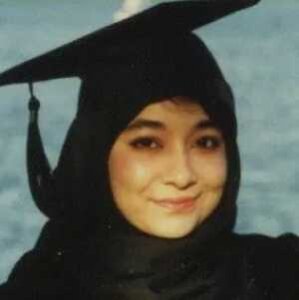Jaun Elia

Jaun Elia
Full name: Syed Sibt-e-Ashgar Naqvi
Native name: جون ایلیا
Born/Date of Birth: 14 December 1931
Place of Birth: Amroha, United Provinces, British India
Died: 8 November 2002 (aged 70), Karachi, Sindh, Pakistan
Occupation: Urdu Poet, scholar philosopher
Nationality: Pakistani
Education: Philosopher, biographer, and scholar
Genre: Ghazal poetry
Notable works: Shayad, Yani, Lekin, Gumman, Goya, Farnod
Spouse: Zahida Hina(m. 1970; div. 1992)
Children: Zeryoun Elia, Fainaana Farnaam, Sohaina Elia
Syed Sibt-e-Asghar Naqvi, commonly known as Jaun Elia (14 December 1931 – 8 November 2002), was a Pakistani Urdu poet, philosopher, biographer, and scholar. He was the brother of Rais Amrohvi and Syed Muhammad Taqi, who were journalists and psychoanalysts. He was fluent in Urdu, Arabic, English, Persian, Sanskrit and Hebrew. One of the most prominent modern Pakistani poets, popular for his unconventional ways, he "acquired knowledge of philosophy, logic, Islamic history, the Muslim Sufi tradition, Muslim religious sciences, Western literature, and Kabbala."
Early life
Jaun Elia was born Syed Sibt-e-Ashgar Naqvi on 14 December 1931 in Amroha, British India. His father, Shafiq Elia, was a scholar of literature and astronomy well-versed in the Arabic, English, Persian, Hebrew and Sanskrit languages, and who corresponded with leading intellectuals like Bertrand Russell. He was the youngest of his siblings. Rais Amrohvi was his elder brother. Indian film director Kamal Amrohi was his first cousin.
Described as a child prodigy, he was initially educated at the Syed-ul-Madaris in Amroha, a madrassah associated with the Darul Uloom Deoband, despite his family being Shia.
During his youth, Pakistan became an independent Muslim state. Being a communist, Elia was averse to the idea, but finally accepted it as a compromise. He migrated to Pakistan in 1957, and decided to live in Karachi. Poet Pirzada Qasim said:
He began writing poetry at the age of 8 but published his first collection, Shayad, when he was 60.
He married writer Zahida Hina in 1970 and they separated in 1992.
Works
Poetry collections
- Sukhan Meri Udasi Hai
- Zakham e Umeed
- Mubada
- Tumharey Aur Mere Darmiyan
- Daricha Haye Kheyal
- Qitaat
- Jaun Elia Ki Tamam Ghazlain (parts I-III)
- Inshaye aur Mazaameen
- Farnood
Prose work (mainly translations)
Elia was not just a poet but was also an editor and a translator, especially of old Sufi, Mutazili and Ismaili treatises.
- Masih-i-Baghdad Hallaj,
- Jometria,
- Tawasin,
- Isaghoji,
- Rahaish-o-Kushaish,
- Hasan bin Sabah
- Farnod, Tajrid,
- Masail-i-Tajrid,
- Rasail Ikhwan al Safa
Above are some of his translations from Arabic and Persian. Not only did he translate these books but also introduced several new words in Urdu language.
about his poetry
His poetry is known for its unending pain. He expressed the pain and sorrow in distinct way that anyone could get influenced by his poetry. We get the flow of pain that his counterparts are lacking. Jaun Elia was nihilist and anarchist as well he had a distinguished philosophy of love in his poetry. According to him, the highest level of love is in actual the Beginning of separation from lover. As he says : {You are so close to me, Have you decided the separation} بہت نزدیک آتی جا رہی ہو ۔۔بچھڑنے کا ارادہ کرلیا کیا؟ And also : {What did you say? Love is eternal! کیا کہا محبت جاودانی ہے؟آخری بار مل رہی ہو کیا؟ Is this last meeting of us? } He also wrote poetry about love, philosophy of love life, but he is well-known as a poet of pain.






